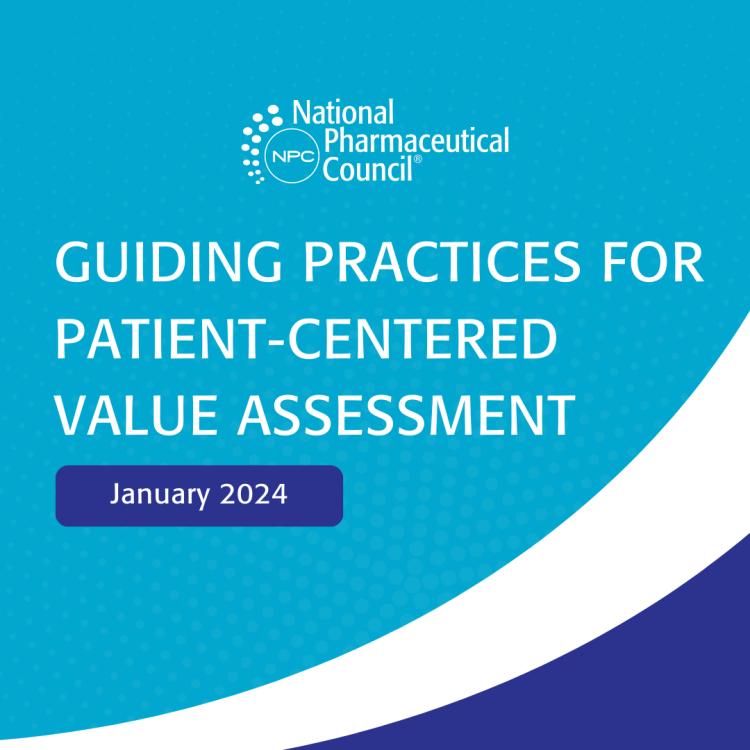For Immediate Release: January 31, 2024
Contact: Michael Pratt, 202-827-2088, [email protected]
Washington, D.C. – Today, the National Pharmaceutical Council, a health policy research organization dedicated to the advancement of good evidence and science, has released an updated edition of its Guiding Practices for Patient-Centered Value Assessment to inform the value assessment process and guide stakeholder decision-making as value assessments increasingly impact patient access to the treatments they need.
This updated guidance from NPC provides market-based, value-driven recommendations to ensure the diverse needs of payers' enrolled populations, local treatment practices, and stakeholder preferences are integrated as value assessments are developed and considered. The document includes 33 specific elements broken out into six key aspects of value assessments: the assessment process, methodology, benefits, costs, evidence, and dissemination and utilization.
“Value in health care encompasses the balance of benefits and costs experienced by patients, their caregivers and families, and society over time. Patients and our health system often see negative effects if the value of a prescription drug is too narrowly focused and artificially set too low in the dynamic marketplace,” said Jon D. Campbell, NPC’s Chief Science Officer. “As such, incorporating patient perspectives and maintaining transparency throughout the value assessment process is critical.”
Since the last publication of the Guiding Practices, value assessments have become further ingrained in health care system decision-making. The Institute for Clinical and Economic Review (ICER) now issues six to eight assessments per year, and the Centers for Medicare and Medicaid Services’ Drug Price Negotiation Program under the Inflation Reduction Act appears to some observers as a form of value assessment. In addition, the research methods supporting value assessment – particularly around the inclusion of patient voice in these evaluations – have continued to evolve.
“Since NPC first published Guiding Practices in 2016, the U.S. experience with value assessment has changed substantially, with activities increasingly focused on the value of pharmaceuticals,” said Campbell. “How value is determined is complex, and because value assessments include both elements of science and judgment, any particular finding should be viewed as a tool, not a rule to set prices.”
About the National Pharmaceutical Council
The National Pharmaceutical Council (NPC) is a health policy research organization dedicated to the advancement of good evidence and science, and to fostering an environment in the United States that supports medical innovation. Founded in 1953 and supported by the nation's major research-based pharmaceutical companies, NPC focuses on research development, information dissemination and education on the critical issues of evidence, innovation and the value of medicines for patients. For more information, visit www.npcnow.org and follow NPC on LinkedIn.
